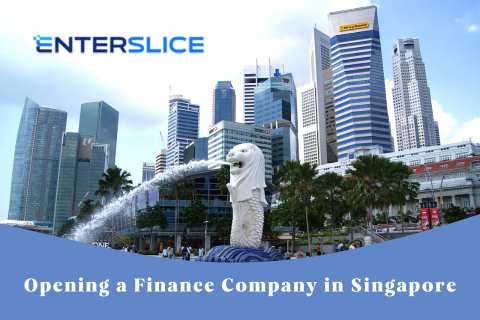Singapore’s financial sector is globally renowned for its stability, innovation, and regulatory excellence. As Asia’s leading financial hub, Singapore attracts finance companies, fintech innovators, and global investors alike. For businesses interested in entering Singapore’s financial market, obtaining a finance company license offers the legitimacy and regulatory approval to operate in this trusted environment. However, securing a license requires a thorough understanding of associated costs. This guide breaks down the key expenses involved in obtaining a license for finance company in Singapore and offers insights on cost management.
Overview of Singapore’s Financial Sector
Singapore’s financial sector is one of the most advanced in the world, thanks to its strong regulatory framework, skilled workforce, and favorable economic policies. As a center for financial services, Singapore supports a range of activities including consumer finance, merchant banking, wealth management, and fintech innovation. The Monetary Authority of Singapore (MAS) governs all financial services, ensuring compliance and maintaining market integrity. For those wishing to establish a finance company, Singapore provides a strategic entry point into both Asian and global markets.
Benefits of Obtaining a Finance Company License in Singapore
Securing a finance company license in Singapore provides businesses with several key benefits:
- Regulatory Legitimacy: A license from MAS signals credibility and compliance with Singapore’s high regulatory standards.
- Market Access: Licensed finance companies can access Singapore’s robust local market and use it as a gateway to expand throughout Asia.
- Tax Efficiency: Singapore’s tax regime is favorable, with various exemptions, deductions, and low corporate tax rates.
- Investor Confidence: Operating under Singapore’s strict regulatory standards instills confidence in clients and investors alike.
Also Read: Documents Required in Private Limited Company Formation in Singapore
Key Costs Involved in Obtaining a Finance Company License
When pursuing a finance company license in Singapore, businesses should prepare for several key costs, categorized as government fees, professional fees, and other operational expenses.
Government Fees
- Application Fees: A fee is required upon submitting the application to MAS, covering administrative processing and review.
- Stamp Duties: Legal documents, such as agreements and contracts, require stamping, which incurs a separate fee.
- License Fees: Once approved, annual license fees must be paid to MAS to maintain the company’s licensed status.
Professional Fees
- Legal Fees: Working with a corporate law firm ensures that all regulatory and compliance requirements are met. Legal fees cover services like document preparation, legal advisory, and regulatory filings.
- Accounting Fees: Businesses need to maintain accurate financial records and file tax reports. Accounting fees cover these services, ensuring compliance with MAS requirements.
- Auditing Fees: Annual audits are mandatory to meet regulatory standards. Auditing fees vary based on the size and complexity of the business.
Other Expenses
- Office Rental: Renting office space is necessary, and associated costs include deposits, monthly rent, and utilities.
- IT Infrastructure: Finance companies need secure IT systems, which involve initial investments in hardware, software, and cybersecurity.
- Staffing Costs: Salaries, benefits, and training for qualified employees add to the operational budget.
- Marketing and Branding: Building brand awareness involves expenses in marketing and outreach, especially in a competitive market like Singapore.
Also Read: Checklist for Company Limited by Guarantee Formation in Singapore
Factors Affecting the Cost
Costs for obtaining a finance company license vary depending on specific business characteristics. The following factors have a notable impact:
- Type of Finance Company: Costs can differ significantly based on the type of finance company—whether it’s focused on consumer finance, merchant finance, or specialized financial products.
- Scope of Operations: Large or complex operations generally incur higher costs due to increased compliance and operational requirements.
- Capital Requirements: MAS sets minimum capital requirements for licensed finance companies, with higher thresholds for companies engaging in broader or riskier financial activities.
- Legal and Regulatory Complexity: Businesses may require specialized legal advice to navigate complex regulatory requirements, impacting legal fees.
- Professional Fees: Costs for legal, accounting, and auditing services vary depending on the provider’s expertise and the company’s specific needs.
Also Read: Challenges in Sole Proprietorship Registration in Singapore
Tips for Minimizing Costs
While obtaining a finance company license can be a costly process, strategic planning can help manage expenses effectively:
- Plan Thoroughly: Develop a comprehensive business plan that identifies all specific costs related to your business activities and licensing requirements.
- Choose the Right Service Providers: Selecting experienced but cost-effective professionals for legal, accounting, and auditing services can help control expenses without compromising quality.
- Leverage Government Incentives: Singapore offers various grants and incentives for companies in the financial sector. Explore these options to help offset initial costs.
- Optimize Operations: Streamlining operations from the start can reduce ongoing expenses, including staffing and technology costs.
- Stay Updated on Regulatory Changes: Proactively staying compliant with evolving regulations helps avoid costly penalties and reduces the need for corrective measures.
Also Read: Benefits of Company Incorporation in the Philippines
Conclusion
Securing a finance company license in Singapore is a worthwhile investment for businesses aiming to establish credibility and gain access to a premier financial market. By understanding the key costs—including government fees, professional fees, and operational expenses—companies can budget accurately and plan for sustainable growth. Careful financial planning and cost management can make the licensing process smoother, enabling finance companies to thrive in Singapore’s competitive market.




